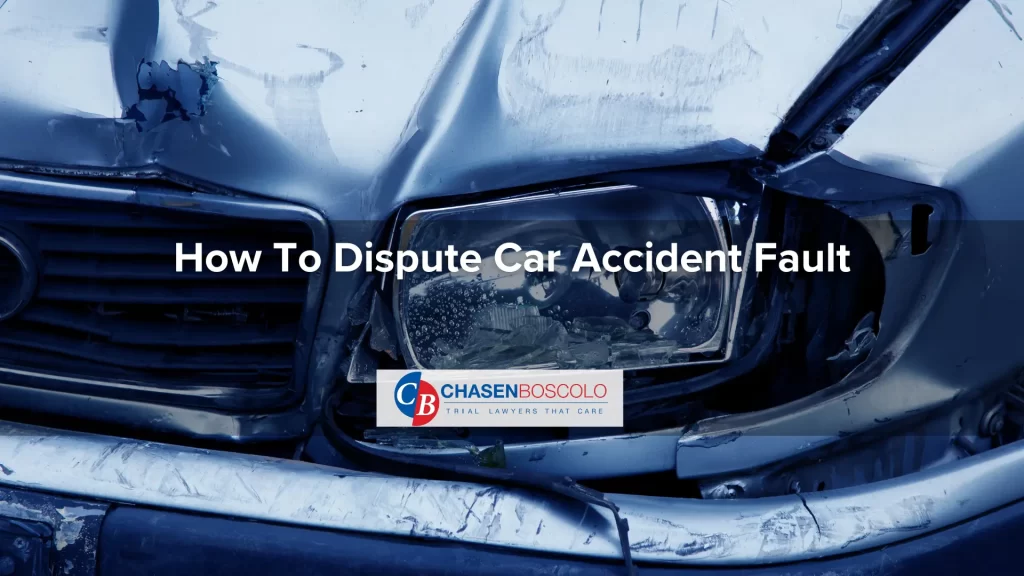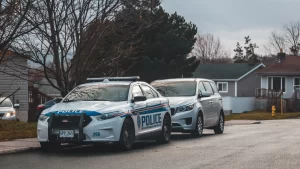Mar 10, 2023 | CHASENBOSCOLO

You can experience significant stress after a car accident, even if it causes only minor injuries. One of the biggest challenges you can encounter is determining who was responsible for the crash. You may need to dispute car accident fault if the other driver denies responsibility.
Sometimes, it is obvious who is at fault. Another driver might be under the influence, making it clear that they should be liable for the crash. However, some circumstances require a thorough investigation to determine who should be financially responsible for your injuries.
The insurance company might blame you to avoid paying your claim. They can issue a denial if they find evidence supporting their fault determination. If the insurer denies your injury claim, you must not hesitate to hire an experienced attorney and fight back.
Who Decides Who Is at Fault in a Car Accident?
Multiple parties can determine fault depending on the circumstances. An insurance company will review an injury claim and decide whether their policyholder or someone else should be liable for the crash. A judge or jury will hear the opposing party’s case and rule in favor of the plaintiff or defendant.
After reporting an accident to the insurance company and filing a claim, the insurance adjuster will investigate. Aside from reviewing the evidence you submit, they will gather evidence themselves to determine fault.
The adjuster can collect statements from eyewitnesses and speak to the drivers involved in the collision. They might also read the police report, request copies of your medical records, and comb through video surveillance and photos from the accident scene.
When they have a clear picture of the events leading up to the crash, they assign fault to one or more drivers.
 How to Dispute Car Accident Fault If the Insurer Assigns You Fault
How to Dispute Car Accident Fault If the Insurer Assigns You Fault
You must take immediate action if the insurance company wrongfully blames you for the car accident and denies your claim. Contact the insurance company when you receive the denial letter. You can call the adjuster, but you should follow up on the conversation with written correspondence.
Physical documentation of the dispute is crucial. Your letter should include your reason for disputing the determination of fault and documentation proving someone else should be liable for the accident.
Although you can dispute the claim decision yourself, hiring an attorney is beneficial. Your lawyer can protect your rights and represent you during every stage of the process. They can help you draft your letter to the insurance company, speak with them on your behalf, and gather substantial evidence to establish liability.
If the investigating officer wrote you a traffic ticket at the accident scene, fighting it is an option. It isn’t always a good idea, but you should attempt to get the ticket dismissed if the officer mistakenly cited you for a traffic violation.
After receiving the denial letter, you can file an appeal. The letter from the insurer should explain why they denied the claim and include instructions for appealing the decision. Your attorney can file the appeal on your behalf and submit documentation to show someone other than you is at fault for the crash.
You can sue the insurance carrier if the appeal is unsuccessful and no other courses of action are available. You must file your lawsuit within a specific timeframe to bring your case to court. Fighting against the insurer’s determination of fault requires careful preparation and substantial evidence. Your lawyer can build a case and obtain medical records, witness statements, and other evidence to present before the judge and jury.
Evidence You Can Use to Prove Another Driver Is at Fault for the Crash
The evidence you submit must show someone else caused the accident so you can hold them liable and secure compensation for your injuries. Evidence can include:
- Traffic camera footage of the collision
- Pictures of skid marks, debris, and other evidence from the accident scene
- Repair estimates for the damage to the vehicles involved
- Statements made by other drivers, passengers, and bystanders
- Video surveillance of another motorist before driving, such as drinking at a nearby bar
- Copies of your medical records and statements from your doctors about the extent of your injuries
Fight Against the Insurance Company with Help from CHASENBOSCOLO
You must not wait to dispute your denied injury claim. If the insurance carrier determines you’re responsible for an accident, contact CHASENBOSCOLO for experienced legal representation.
We aggressively advocate for injured clients to hold others accountable for their misconduct. You should not pay for an accident you did not cause.
Call CHASENBOSCOLO at (301) 220-0050 for a free consultation if the insurer wrongly assigned you fault for a car accident.
Related Posts
How Do Car Accident Settlements Work?

 How to Dispute Car Accident Fault If the Insurer Assigns You Fault
How to Dispute Car Accident Fault If the Insurer Assigns You Fault



